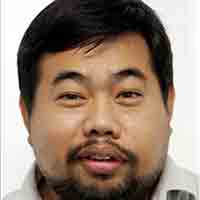

It’s about time that the Philippines and Japan level up their security relations not just as strategic partners but as treaty allies.
But Manila and Tokyo must first conclude a Status of Forces Agreement (SOFA), similar to the 1999 Visiting Forces Agreement (VFA) between longtime allies Philippines and the United States, or the Status of Visiting Forces Agreement (SoVFA) between Manila and Canberra, which was ratified in 2012.
If such an agreement pushes through, this would allow Japanese troops to take part in joint and combined training and exercises with the Armed Forces of the Philippines, a military activity which Tokyo has been doing for the past year anyway but behind the annual “Balikatan” (shoulder-to-shoulder) and “Kamandag” (Venom) exercises between US and Philippines forces.
Japan is one of the countries in the region invited to observe the war games, but it sent actual boots on the ground last year to actively take part in training exercises. This is an apparent violation of the Philippine Constitution and laws, which prohibit foreign troops on Philippine soil except those allowed based on a security agreement.
When the Philippine Senate terminated the Philippines-US Military Bases Agreement in September 1991, the Status of Forces Agreement (SOFA) of both countries at the time also ended and the last American sailor left Subic Naval Base in November 1992.
For the next 3 years, American sailors, air and ground troops and Marines continued to train and take part in exercises in the Philippines because of diplomatic immunity accorded them just like any other US embassy’s A&T (administrative and technical) staff. But this soon became a problem – providing 5,000 troops with visa exemptions, free custom duties, and quarantine procedures.
The Balikatan and other training exercises stopped at a time when threats from China emerged, particulary in February 1995 when a Philippine Air Force fighter pilot discovered a makeshift hut built by China on the half-submerged Mischief Reef (Panganiban Reef).
So both countries eventually agreed to come up with SOFA, which was renamed VFA because of adverse reaction from activists.
In February 1998, the VFA was signed and the Philippine Senate ratified the agreement in May 1999 when Joseph Estrada, one of the 12 senators who kicked out the bases in 1991, was already president.
Since then, the security landscape has changed. Today, the US is overburdened by the weight of emerging challenges to global peace, stability, prosperity, and security.
Japan’s expanding role
Washington’s allies are worried that the US could not handle these problems alone. They have to rise and take action for their own national interests.
From the 1990s, Japan has been expanding its regional security role – from sending peacekeepers as part of UN missions in strife-torn areas, to deploying Japan’s Maritime Self-Defense Forces vessels anti-piracy patrols in Somalia, and to moves under Prime Minister Shinzo Abe to revise Tokyo’s pacifist constitution.
In power since 2012 and probably one of the longest-serving leaders in modern Japan, Abe’s dream of a strong military force resonates with a Japanese public concerned with an unpredictable North Korea and an expansionist China – both nuclear-weapon states.
Under Abe, Japan started exploring the idea of entering into military agreements with allies in the East Asia and Pacific region so it could play a larger role in the security and stability in this part of the world.
By the end of 2019, Tokyo will conclude a Visiting Forces Agreement with Canberra that will allow Australian troops to undergo training and exercises on Japanese soil and vice versa.
Better ally?
Japan has sent low-level defense and foreign ministry officials to start discussions with Philippine counterparts as the two countries expand and enlarge security engagements.
It's worth noting that Abe enjoys close ties with President Rodrigo Duterte. He is the only world leader so far to have had a glimpse of Duterte’s bedroom in Davao, where he was shown the Filipino president’s mosquito net. He is also the only leader that Duterte prefers to meet every time there’s an opportunity in regional summits, like those held by the Asia-Pacific Economic Cooperation (APEC) and Association of Southeast Asian Nations (ASEAN).
In 2017, an official from the Japan’s Ministry of Defense met with a Philippine counterpart to discuss a possible VFA while Tokyo was in the thick of negotiations with Canberra over the same arrangement.
The official said they have studied both agreements entered into by the Philippines with the US (VFA) and with Australia (S0VFA). Japan wants an agreement patterned after its impending deal with Australia, which would respect the sovereignty of the Philippines on legal cases involving Japanese soldiers who commit crimes outside of the military activities they are here for.
However, not much is moving in the planned VFA. Perhaps Japan is waiting for the conclusion of its agreement with Australia? Over the weekend, Japanese Foreign Minister Taro Kono visited Davao City and met with President Duterte.
Japan has been a better ally than the United States, given the unpleasant past when it invaded the Philippines in 1941. It is now one of the Philippines' biggest officials development assistance (ODA) donors, top trading partner and investor, and now a source of military equipment. (READ: PH receives anti-bomb gear from Japan)
In early 2018, it completed sending 5 TC-90 surveillance planes to the Philippines, which were initially leased but eventually given for free.
During the first quarter this year, Japan will donate around P50 billion worth of helicopter spare parts and air frames, extending the life of the small fleet of Philippine Air Fore UH-1H “Huey” helicopters.
The two former enemies and now close friends should bring their security relations to the next higher level. – Rappler.com
A veteran defense reporter who won the Pulitzer in 2018 for Reuters' reporting on the Philippines' war on drugs, the author is a former Reuters journalist.